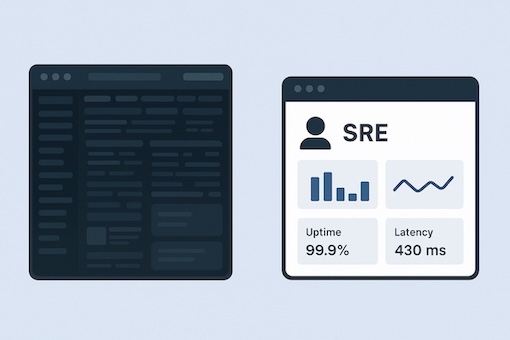Latest blog posts
DevOps resources tips and best practices
Scaling and re-platforming your operating systems to meet the scale of your company can be a never-ending task. Re-engineering, re-training, and re-tooling can all quickly become overwhelming. Our guest today discusses his approach to refocusing and building out a technical and decentralized framework in a company that had previously viewed tech as an enabler, rather than a driver of business growth.

Scaling and re-platforming your operating systems to meet the scale of your company can be a never-ending task. Re-engineering, re-training, and re-tooling can all quickly become overwhelming. Our guest today discusses his approach to refocusing and building out a technical and decentralized framework in a company that had previously viewed tech as an enabler, rather than a driver of business growth.
Andreas Westendörpf, Chief Technology Officer at Emma Sleep joins to discuss his teams’ re-platforming effort as Emma scaled to a worldwide e-commerce brand, reaching 30 different countries since its start in 2015.
Join us as we discuss:
Because Emma is an e-commerce brand and not a tech company, technology was primarily seen as an enabler of business development instead of a driving force in its success.
The possibilities of what tech could do for them were overlooked in their early years. When Andreas joined the picture, the technology platform at Emma was extremely monolithic and highly customized.
Over time, it accumulated tons of technical and organizational depth and as a result, the platform was only able to do very few tasks at a time, and tasks that should otherwise be simple took forever to implement and took large teams to accomplish.
It became clear that this technical architecture was not working for the brand. Thus began the re-platforming process, stepping away from the monolithic architecture and organizational setup.
Then came understanding the business and where the business wanted to go in the future so as to better create the technology that would take them there. Andreas and his team set software design principles to set a clear idea of the software they were designing for Emma.
When developing the new software, Emma was going through hyper-growth. So, Andreas and his team decided to first focus on the B2C aspects of re-platforming as this was the majority of the business model. They then scaled their systems accordingly and came back to the software to continue focusing on wholesale.
When working in any business, there are a lot of moving parts that have to work together.
In tech and e-commerce, it’s important to make sure that your teams are not constantly depending on another team. The products team at Emma is set up with the necessary skills to succeed within the team and everything they need to proceed with their work at all times. This limits dependencies and prevents the team from waiting on others.
Because of the fast-paced nature of the business, it’s beneficial to educate and train your team to be set up from start to finish, without need for outside assistance to get the most work done.
Make sure your team understands the big picture of both your product and processes so that they can deliver results on their own and solve problems holistically. This structure encourages collaboration within individual teams and creates a highly effective driving of the business.
When it comes to the decision of build vs buy, Andreas offers a new perspective of ‘build and rent’.
Build what you can do better than others even if it’s not your core business. At Emma, they live by this day in and day out. They’ve created internal solutions and become a powerhouse in marketing, despite neither being their core business.
They currently outperform other products on the market with the solutions that they have created themselves, limiting the amount of outsourcing done by the company and creating parts of their company that are better than anything they could have outsourced.
But, Andreas emphasized the need to keep the list of experiments short and focused on your core business. Be confident about how much you want to invest in these projects and if they end up being strong internally, eventually you can offer them to others as your own.
Want to learn more about moving away from monolithic software, empowering your teams and the idea of ‘build and rent’? Listen on Apple Music, Spotify or wherever you find your podcasts.

Kenneth (Ken) Rose is the CTO and Co-Founder of OpsLevel. Ken has spent over 15 years scaling engineering teams as an early engineer at PagerDuty and Shopify. Having in-the-trenches experience has allowed Ken a unique perspective on how some of the best teams are built and scaled and lends this viewpoint to building products for OpsLevel, a service ownership platform built to turn chaos into consistency for engineering leaders.
Conversations with technical leaders delivered right to your inbox.
DevOps resources tips and best practices
.png)
.png)

